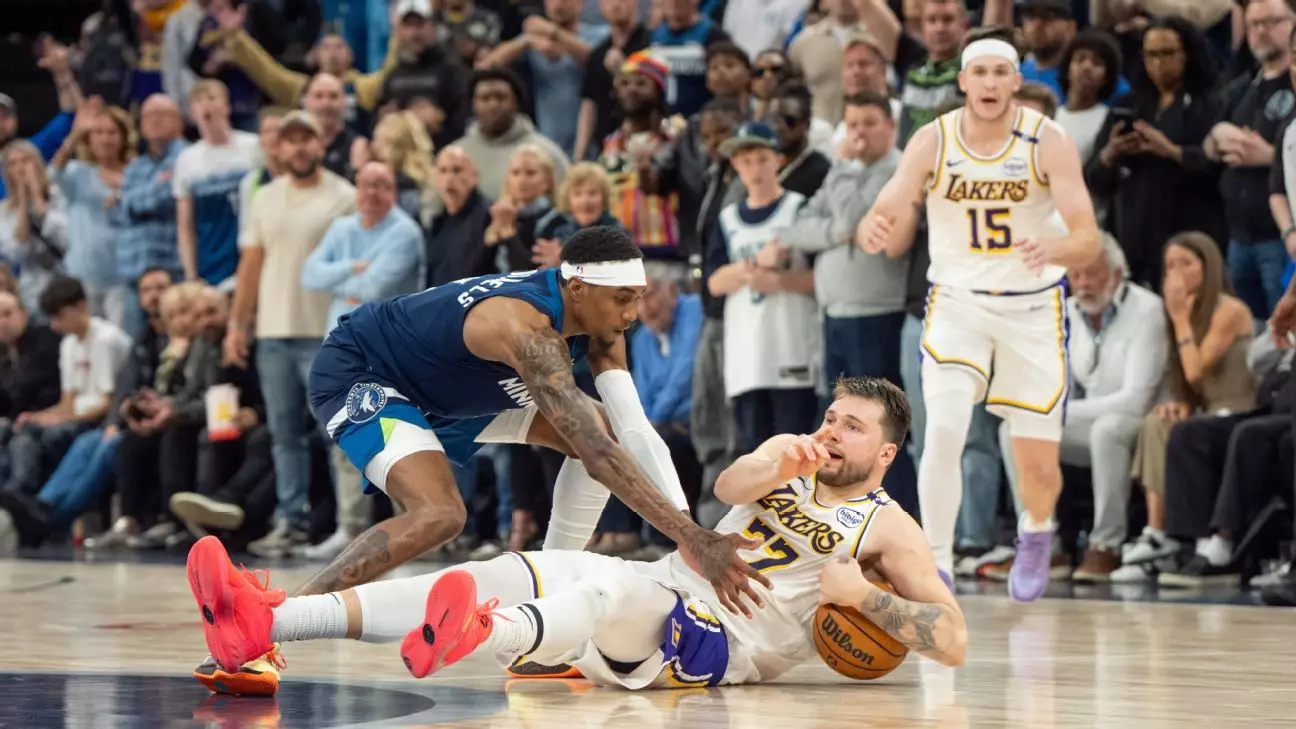In the high-stakes environment of the NBA playoffs, every possession can dictate the course of a series. Yet, it came to light that a critical moment slipped through the fingers of referees during Game 4 of the Western Conference playoff series between the Los Angeles Lakers and the Minnesota Timberwolves. Luka Doncic, a pivotal player for the Lakers, was clearly fouled with just 33 seconds left on the clock while attempting to maintain his grip on the game. The lapse not only offended the principles of fair play but ultimately altered the dynamic of an intensely contested matchup.
The Aftermath of a Costly Mistake
The NBA, in its routine Last Two Minute Report, confirmed the oversight, stating that Jaden McDaniels’ illegal foot contact with Doncic was the catalyst for his loss of balance. This admission from the league indicates an acknowledgment of the human errors that can overshadow the athletic brilliance on display during the playoffs. With Doncic victims of this mistake, the game spiraled from an opportunity for the Lakers to regain control to a last-minute scramble that ended in heartbreak. The Lakers were forced to regroup quickly; the chance to draw a foul and either tie or take the lead evaporated, replaced instead by a possession that saw Minnesota capitalize on their opponents’ misfortune.
The Ripple Effect of Officiating Decisions
In examining the broader implications of such officiating errors, one must consider the psychological toll on the players involved. Doncic’s frustration was palpable, articulating clearly post-game that he “got tripped, for sure.” The sentiment shared by players often suggests that not only do such mistakes negate potential scoring opportunities, but they also induce a sense of injustice that can linger, affecting future performances. This is exemplified by how LeBron James subsequently felt wronged after a foul called against him which he felt was unjustified. Mistakes against him might seem trivial, yet they aggregate in the pressure cooker of playoff basketball.
Lessons Not Learned
To not address these shortcomings is to hold the future integrity of the game hostage. The NBA prides itself on promoting fairness and sporting spirit. Yet, the repeated instances of oversight call into question whether enough is being done to train referees to manage the intensity of playoff conditions. The utilization of technology and perhaps an increased focus on training officials under pressure could mitigate these frequent lapses, ensuring that such vital moments are given the scrutiny they deserve. A quick review process during critical junctures might also help avoid irreversible mistakes on the scoreboard.
The Broader Implications for the Teams
As the playoffs progress, both the Knicks and Timberwolves have taken pivotal leads, while the Lakers face the daunting task of overcoming this setback. For teams relying heavily on momentum shifts that hinge on crucial calls, the stakes have never been higher. Competitive integrity must not just be a goal for players but for the referees and the league as a whole. In the shimmer of victory or despair, the attention must now shift not only to player performance but to the impartiality and accuracy of those tasked with upholding the rules. As the series nears its climax, the spotlight will shine brightly on the officials, demanding clarity and consistency in their rulings, or else risk diminishing the legacy of one of basketball’s most revered stages.


Leave a Reply